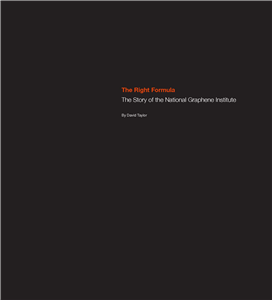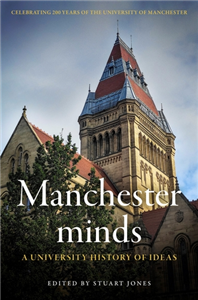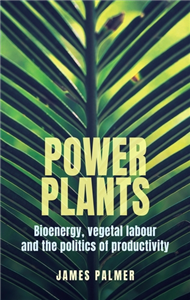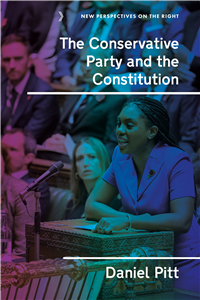Your Search Results
-
Promoted Content
-
Promoted ContentChildren's & YAApril 2024
Smart Pickings
2nd Edition
by Lynne Bianchi
Smart Pickings (2nd Edition) further engages young readers with the world of science. It promotes talk between children, their classmates, teachers, parents, family and friends. The book introduces a range of diverse and inspirational scientists who have or are making a difference through their innovations and research. A book to encouraging us all to wonder, ask questions and ask 'Who are they?', 'How might I be like them?'
-
 Trusted Partner
October 2022
Trusted Partner
October 2022Ernst Haeckel
Zoologist, artist, philosopher and freethinker
by Rainer Willmann
Ernst Haeckel (1834–1919) is one of the most famous and influential researchers of all times. This brilliant biography by Rainer Willmann recounts Haeckel's fascinating life for science and his fight for freedom of thought. Haeckel is a vehement advocate of Darwinian doctrine and develops it further, which is why he is fiercely attacked not only by the church but also by his fellow scientists. Among other things, we owe to Haeckel the freedom of research and teaching that we take so much for granted. That he was also a talented artist is proven by his drawings of marine organisms ... The gripping and highly interesting life story of an extraordinary freethinker and scientist.
-
 Trusted Partner
March 2025
Trusted Partner
March 2025Leó Szilárd
The man behind the bomb
by Arne Molfenter
Leó Szilárd is a brilliant physicist - although he originally began his studies in Berlin without even being enrolled. On long walks home from university, he discusses scientific issues of all kinds with his professor and neighbour Albert Einstein. Szilárd, who is of Jewish descent, flees to London in 1933. His goal is to prevent the Germans from being the first to have nuclear weapons. With Albert Einstein and other scientists, he puts himself at the service of the American government to advance the development of an atomic bomb for defence purposes. When he realises that the Manhattan Project is not about defence, but about an attack on Japan, he is horrified. Author and journalist Arne Molfenter traces the life of this brilliant man whose invention was used completely against his intentions. It is an exciting book about a scientist whose research influenced the course of history.
-
 Trusted Partner
The ArtsAugust 2016
Trusted Partner
The ArtsAugust 2016The Right Formula
The story of the National Graphene Institute
by David Taylor
In the corner of a Manchester laboratory in 2004, two scientists stumbled on a major discovery while pulling pieces of Sellotape apart - graphene. This is the story of those scientists, Professors Andre Geim and Kostya Novosolev, their eureka moment, subsequent Nobel Prizes and investigation into the wonder material's potential uses. But it is also the tale of the building they created with architects Jestico + Whiles and others to push graphene's potential ever further. This is the story of the National Graphene Institute.
-
 Trusted Partner
Geography & the EnvironmentMay 2020
Trusted Partner
Geography & the EnvironmentMay 2020Into the woods
An epistemography of climate change
by Meritxell Ramírez-i-Ollé
This book is a detailed exploration of the working practices of a community of scientists exposed in public, and of the making of scientific knowledge about climate change in Scotland. For four years, the author joined these scientists in their sampling expeditions into the Caledonian forests, observed their efforts in the laboratory to produce data from wood samples and followed their discussions of a graph showing the evolution of the Scottish temperature over the past millennium in conferences, workshops and peer-review journals. This epistemography of climate change is of broad social and academic relevance - both for its contextualised treatment of a key contemporary science, and for its original formulation of a methodology for investigating expertise.
-
 Trusted Partner
Humanities & Social SciencesSeptember 2012
Trusted Partner
Humanities & Social SciencesSeptember 2012Rescaling the state
Devolution and the geographies of economic governance
by Mark Goodwin, Martin Jones, Rhys Jones
Rescaling the state provides a theoretically-informed and empirically-rich account of the process of devolution undertaken in the UK since 1997, focusing in particular on the devolution of economic governance. Using case studies from England, Scotland, Northern Ireland and Wales, the book examines the purported reasons for, and the unintended consequences of, devolution. As well as comparing policy and practice across the four devolved territories, the book also explores the pitfalls and instances of good practice associated with devolution in the UK. Rescaling the state is an important text for all social scientists - particularly political scientists, sociologists, anthropologists and human geographers - interested in the devolution of power in the UK and, indeed, all instances of contemporary state restructuring. It is also a significant book for all policy-makers interested in understanding the increasing complexity of the policy landscapes of economic governance in the UK. ;
-
 Trusted Partner
Trusted Partner
-
 Trusted Partner
Trusted Partner
-
 Trusted Partner
Trusted Partner
-
 Trusted Partner
Trusted Partner
-
 Trusted Partner
October 2009
Trusted Partner
October 2009Christian Science im Lande Luthers
Eine amerikanische Religionsgemeinschaft in Deutschland, 1894-2009
by Waldschmidt-Nelson, Britta
-
 Trusted Partner
Humanities & Social SciencesSeptember 2024
Trusted Partner
Humanities & Social SciencesSeptember 2024Manchester minds
A university history of ideas
by Stuart Jones
A bicentennial celebration of brilliant thinkers from The University of Manchester's history. The year 2024 marks two centuries since the establishment of The University of Manchester in its earliest form. The first of England's civic universities, Manchester has been home and host to a huge number of influential thinkers and generated world-changing ideas. This book presents a rich account of the remarkable contribution that people associated with The University of Manchester have made to human knowledge. A who's who of Manchester greats, it presents fascinating snapshots of pioneering artists, scholars and scientists, from the poet and activist Eva Gore-Booth to the economist Arthur Lewis, the computer scientist Alan Turing and the physicist Brian Cox.
-
 Trusted Partner
November 2004
Trusted Partner
November 2004CAD/CAM mit Pro/Engineer
Einstieg in die NC-Programmierung
by Rosemann, Bernd; Freiberger, Stefan; Landenberger, Daniel
-
 Trusted Partner
September 2014
Trusted Partner
September 2014Letters from an American Botanist
The Correspondences of Gotthilf Heinrich Ernst Mühlenberg (1753–1815)
by Schönhofer, Matthias
-
 Trusted Partner
Business, Economics & LawJune 2026
Trusted Partner
Business, Economics & LawJune 2026Power plants
Bioenergy, vegetal labour and the politics of productivity
by James Palmer
Power Plants offers an unflinching assessment of society's underappreciated but growing addiction to the industrial burning of crops and trees for energy. As vehicles increasingly run on fuels made from sugarcane and oil-palm, wood pellets replace coal, and scientists rush to engineer crops to produce renewable jet fuel, this book blows apart bioenergy's reputation as a simple, benign substitute for fossil fuels. Scrutinising modern bioenergy systems in the UK, Europe and United States, Power Plants shows how vegetal lifeforms are being enrolled to reinforce energy cultures centred around logics of efficiency, productivity and economic growth at all costs. Nonetheless, the book insists that a closer attention to plants could yet provoke a rethink of the social and economic purposes of all kinds of energy, with radical implications for ideas about growth, waste, prosperity and even pleasure.
-
 Trusted Partner
Trusted Partner
The Geography of Health
The Spatial Dimension of Epidemiology and Treatment
by Jobst Augustin, Daniela Koller
This title is the first interdisciplinary book about geography and health that takes scientific methods and questions into account making it a great manual of international health geography research. The topics include: • spatial statistical analysis • mobility analysis in health research • GIS and mapping tools • cartographic visualization • health mapping • cancer epidemiology • morbidity • climate change and health – the example of Germany • global change and infectious diseases Target Group: Health scientists, geographers, doctors (epidemiologists)
-
 Trusted Partner
Humanities & Social SciencesJune 2026
Trusted Partner
Humanities & Social SciencesJune 2026The Conservative Party and the Constitution
by Daniel Pitt
The Conservative Party and the Constitution examines the profound influence on Britain's constitutional framework over nearly two centuries. Through rigorous analysis, it traces how Tory leaders navigated parliamentary reform, devolution, and Brexit, balancing tradition with pragmatic adaptation. Drawing on exclusive interviews, archival records, and historical sources, the book reveals the Party's statecraft and offers fresh insights into the Conservatives' role in shaping modern governance. Essential for historians, political scientists, and those engaged with British politics, this study illuminates the dynamic interplay of power, ideology, and constitutional change, making it a vital contribution to understanding Britain's constitutional history.
-
 Trusted Partner
May 2021
Trusted Partner
May 2021The Humane Idea
Rudolf Virchow and Hermann von Helmholtz. The legacy of the Charité
by Ernst Peter Fischer, Detlev Ganten
Two of today’s leading scientists, Ernst Peter Fischer and Detlev Ganten, reconfirm the legacy of two influential 19th-century researchers. To mark the 200th birthday of Rudolf Virchow (1821–1902) and Hermann von Helmholtz (1821–1894), they explain why pioneering research and holistic thinking are still relevant for health science and practice, and for a sustainable balance of people, society and the environment. The historical achievement of Virchow and Helmholtz continues today with the work of researchers like Emmanuelle Charpentier and Christian Drosten, so ensuring that the humane idea continues to be fruitful in the future. An insight into the history of medical science.
-
 Trusted Partner
August 2016
Trusted Partner
August 2016Body Image and Body Image Disturbances
by Andreas Uschok
Nurses encounter patients whose body image reality has been changed by disease, injuries or traumas on a daily basis. In a world where a flawless body is so highly valued, these patients may struggle to adapt to and accept these changes which can lead to body image disturbances. This handbook provides all those professionals caring for people with amputations, skin disorders, stoma, breast cancer and other diseases with information on the concept of body image and how to assess it, as well as describe possible symptoms and causes of body image disturbances and offers interventions to improve patients’ body image. Target Group: health scientists, geographers, doctors (epidemiologists).





























